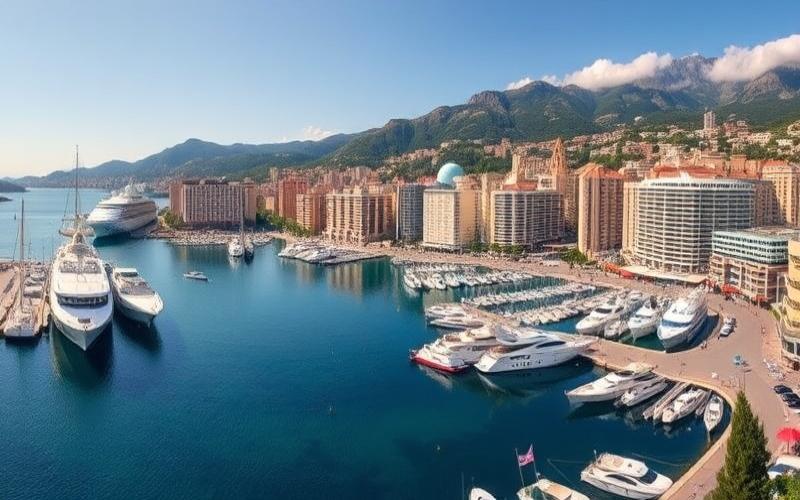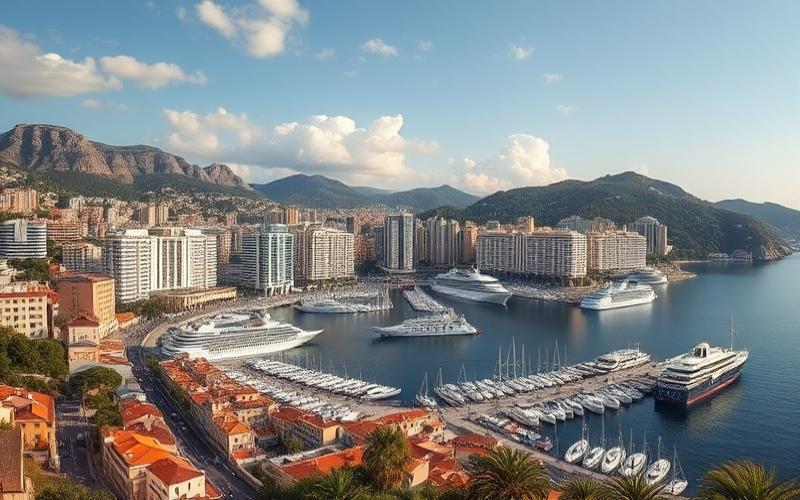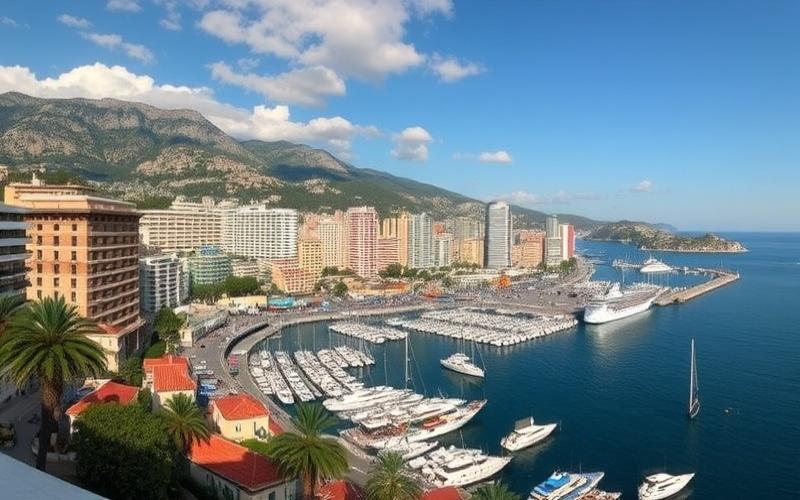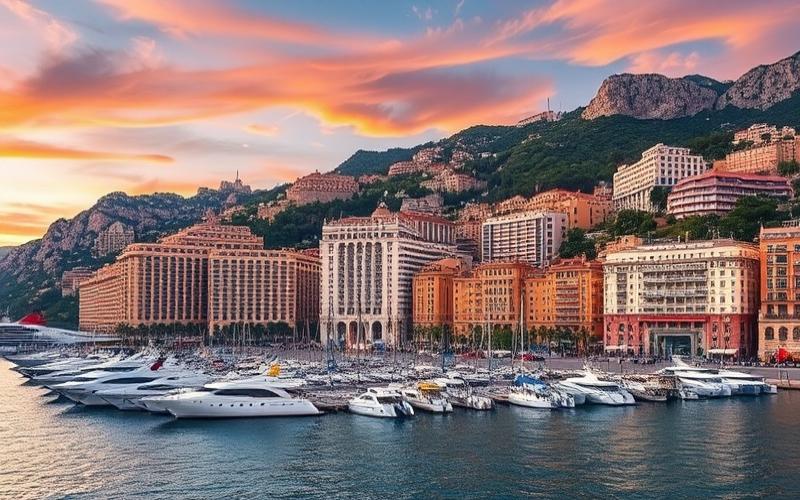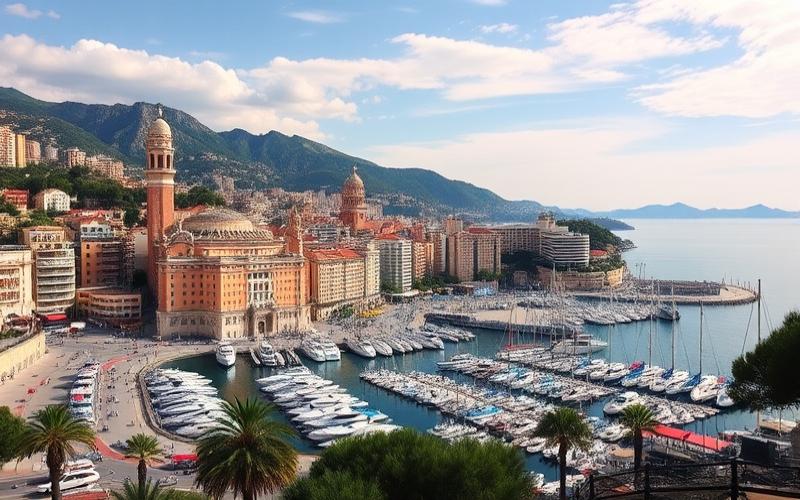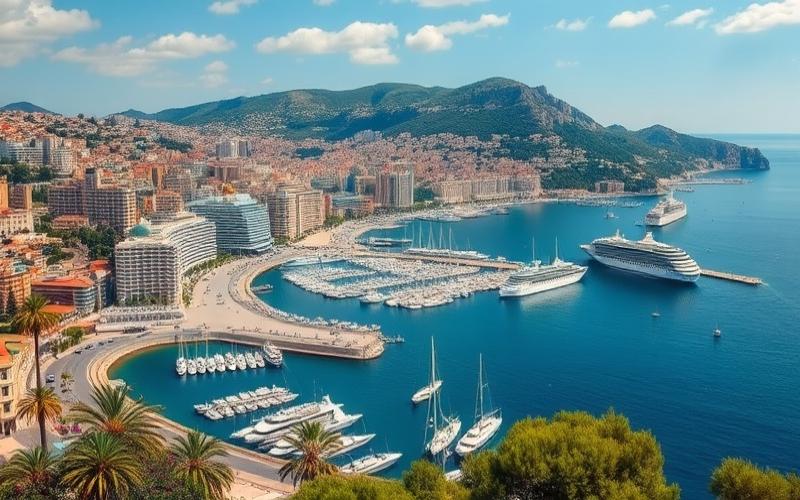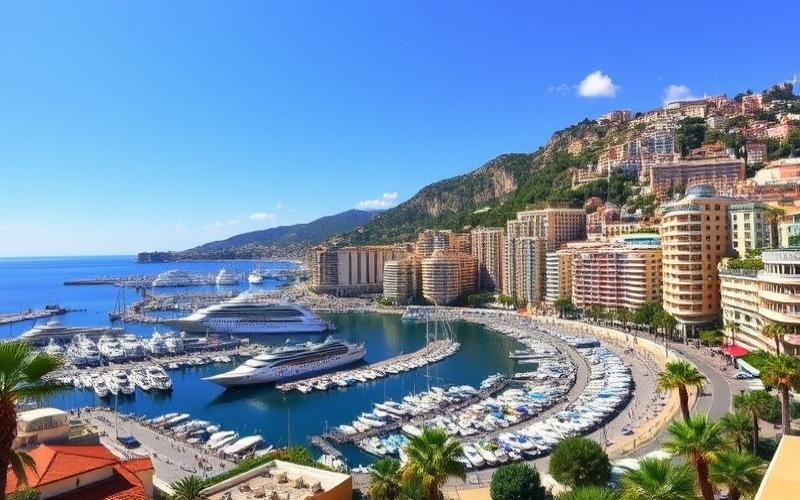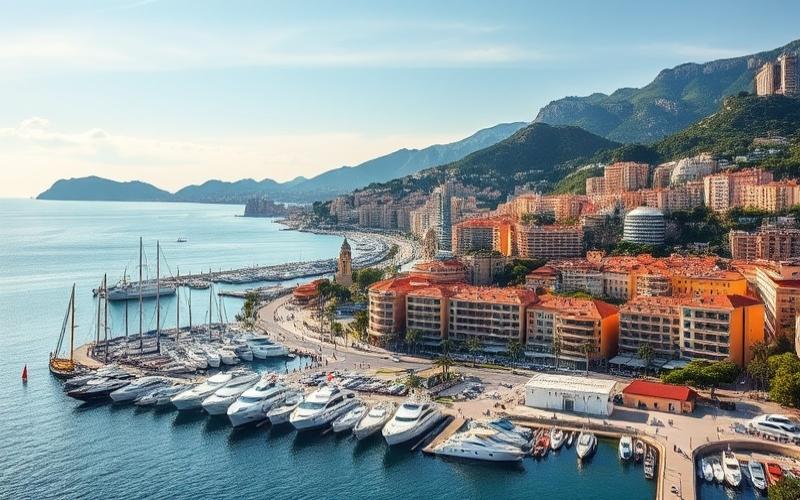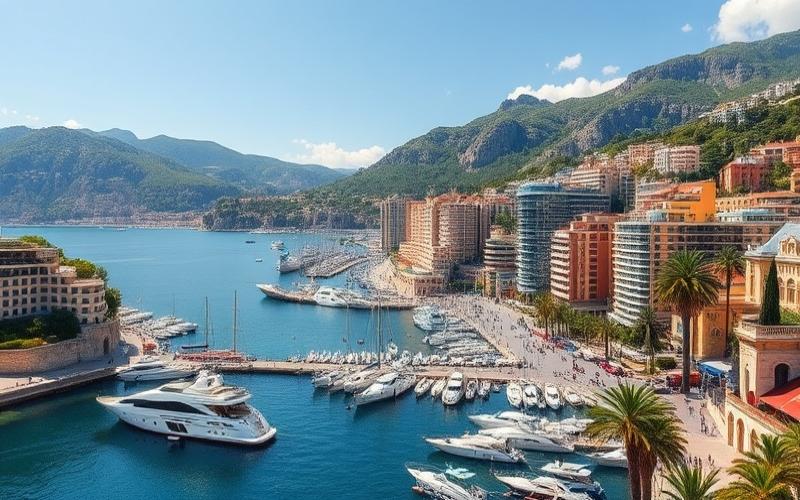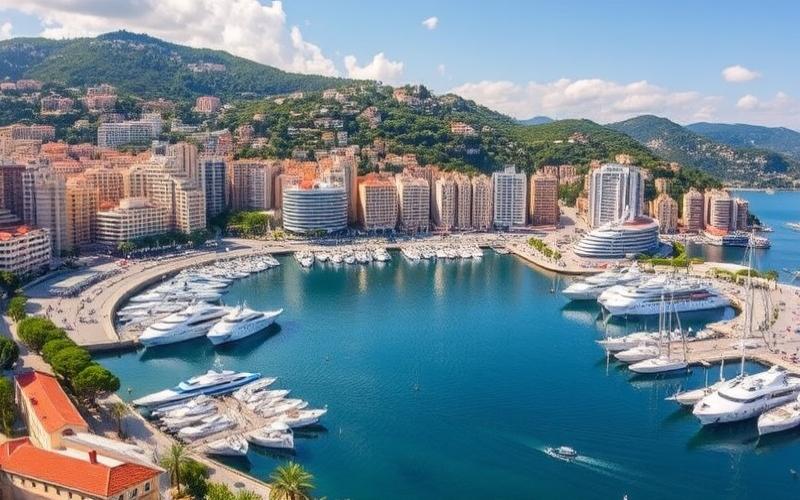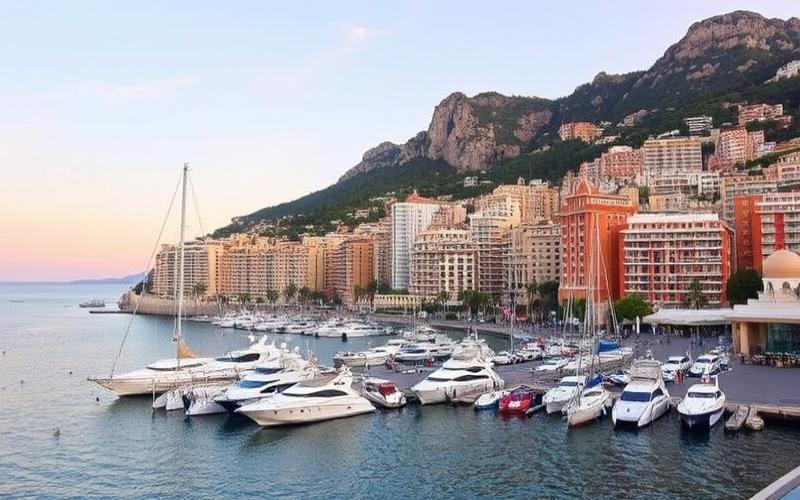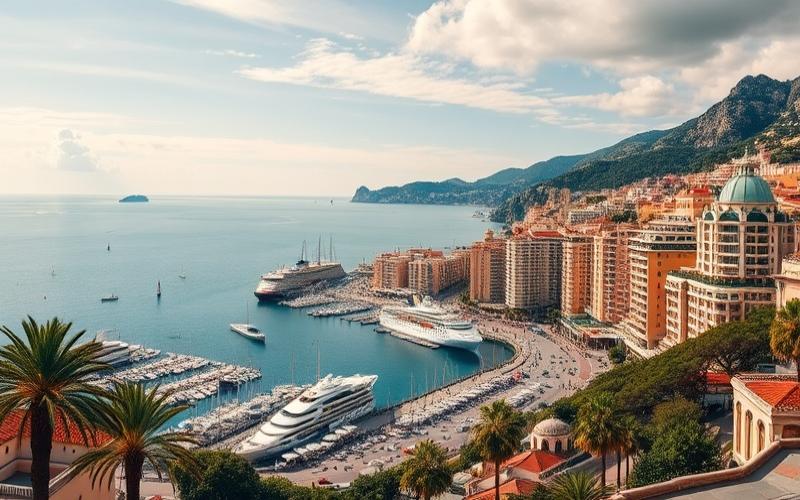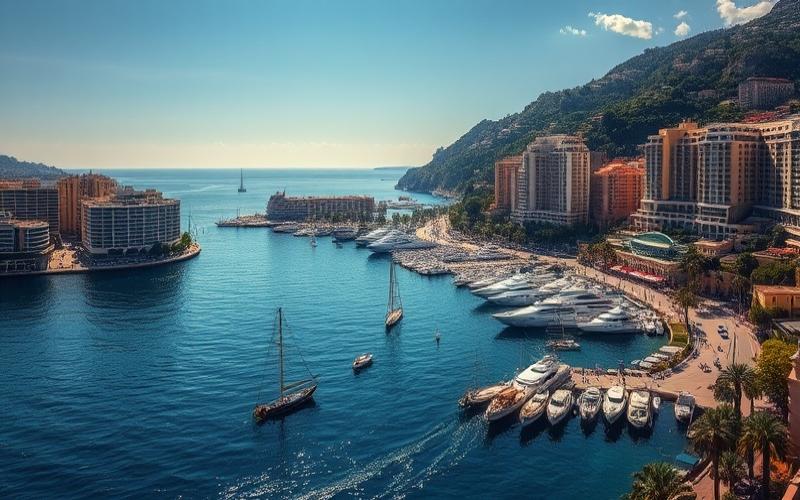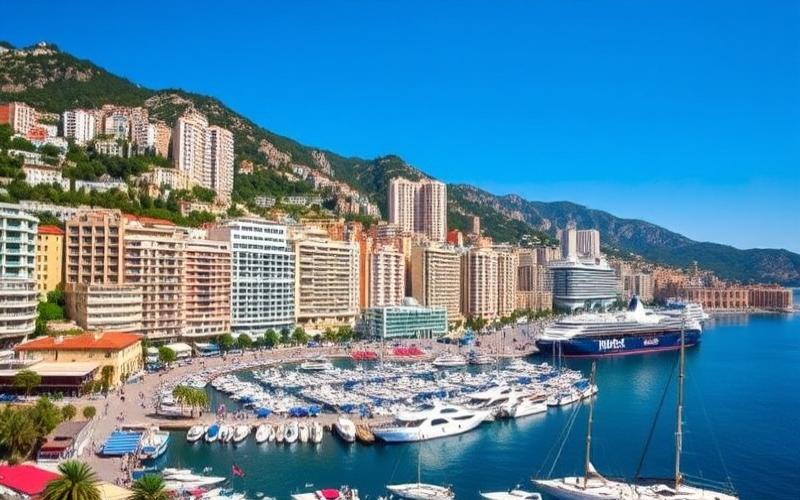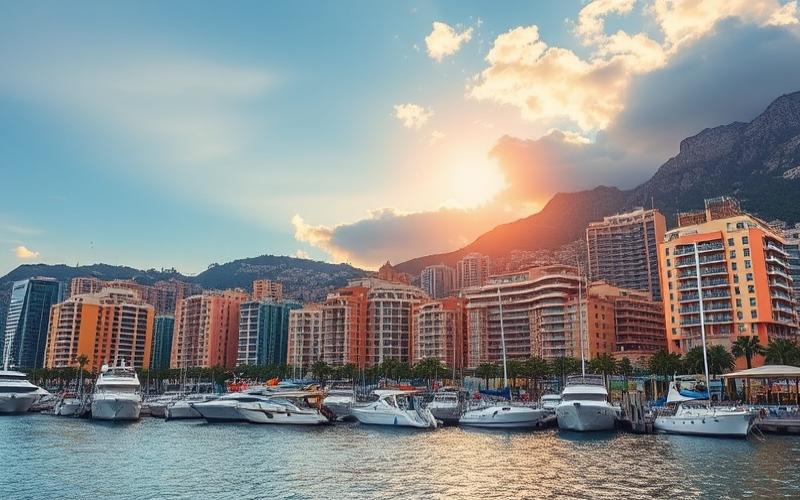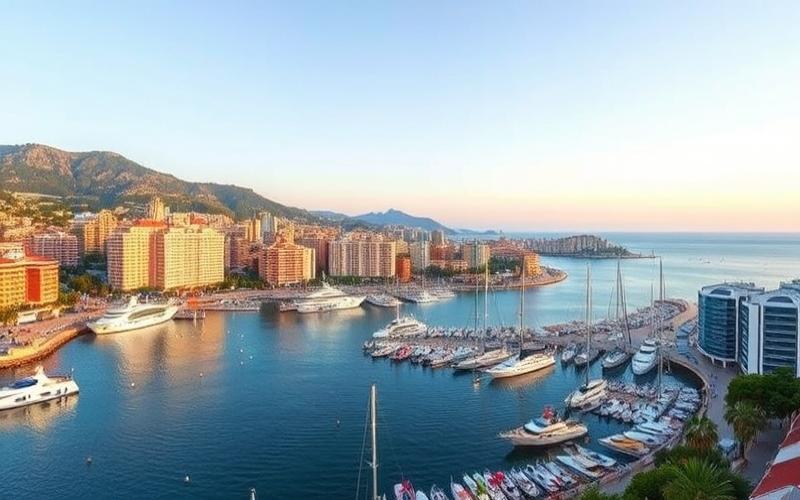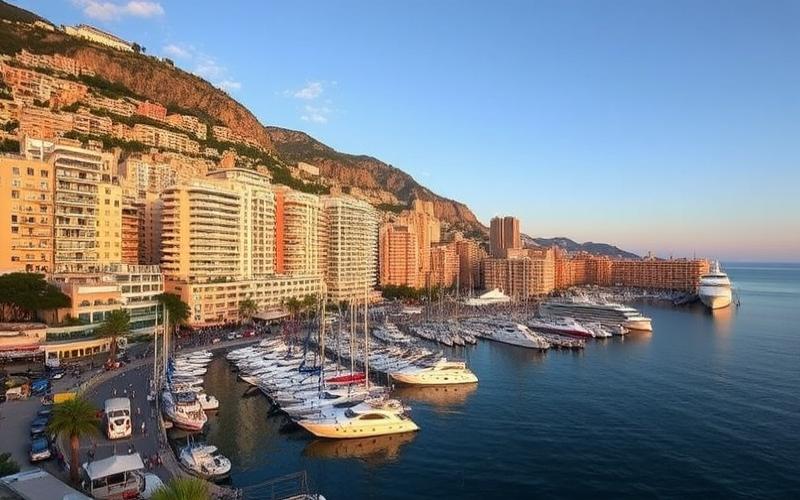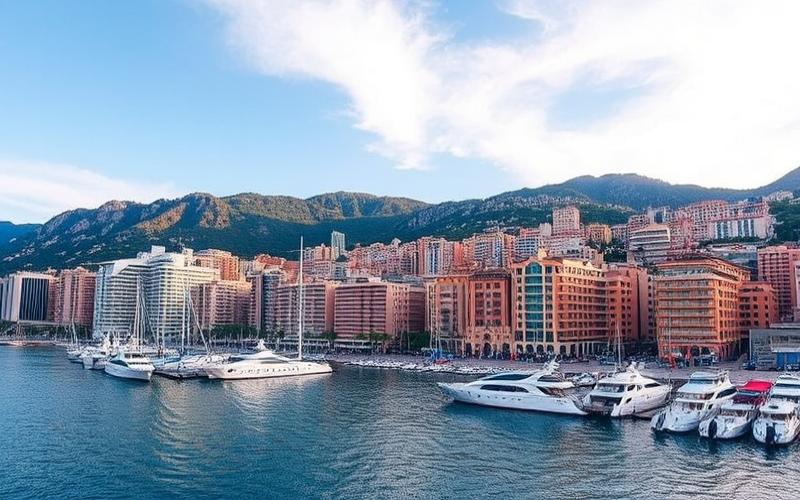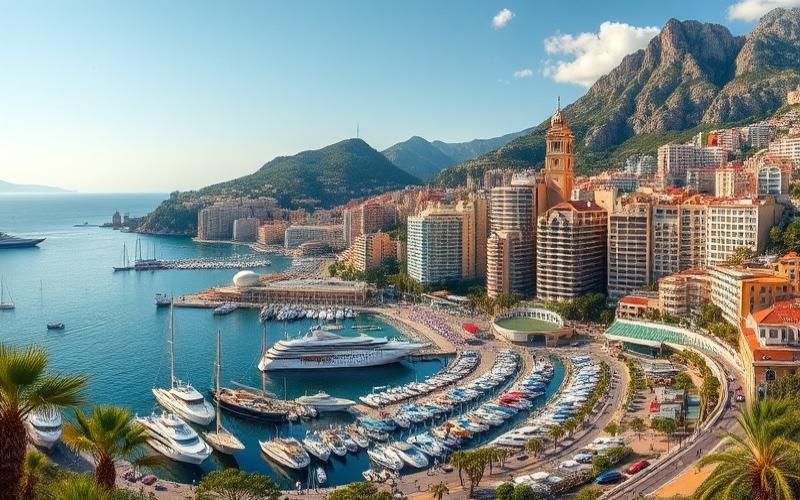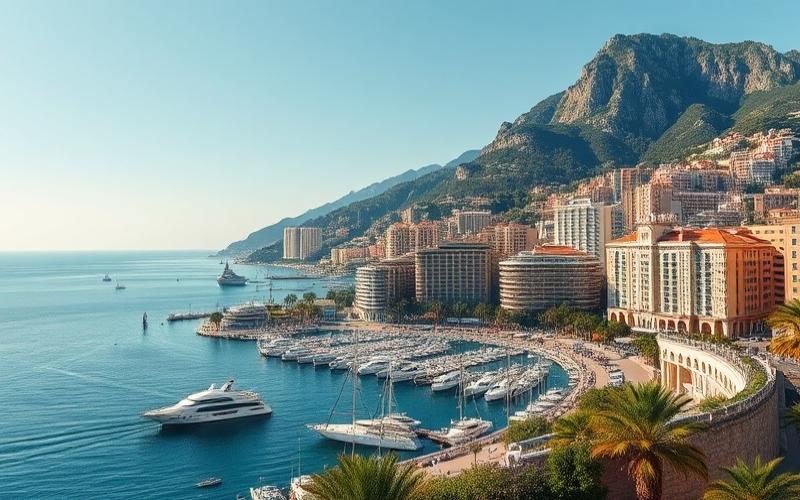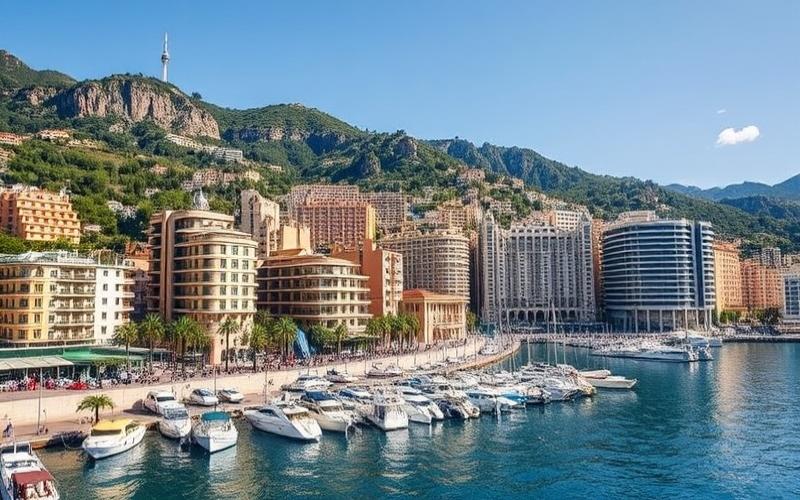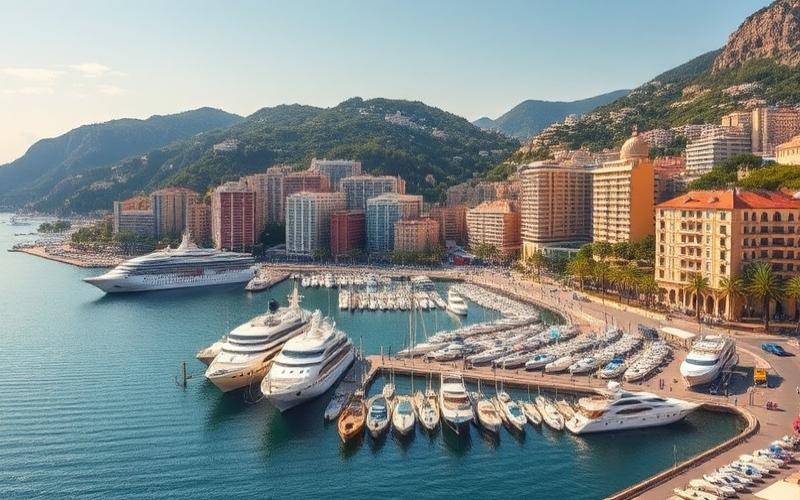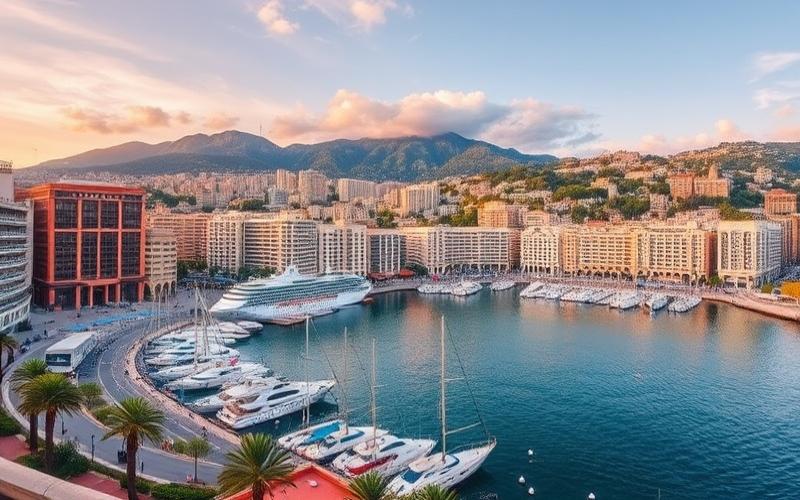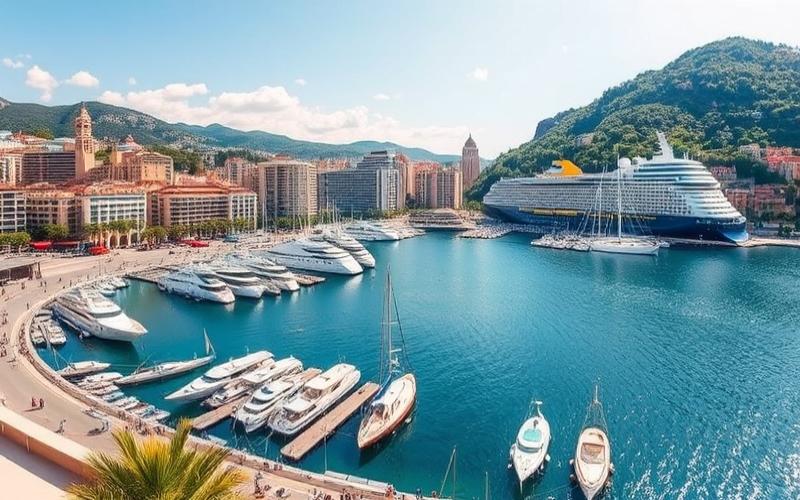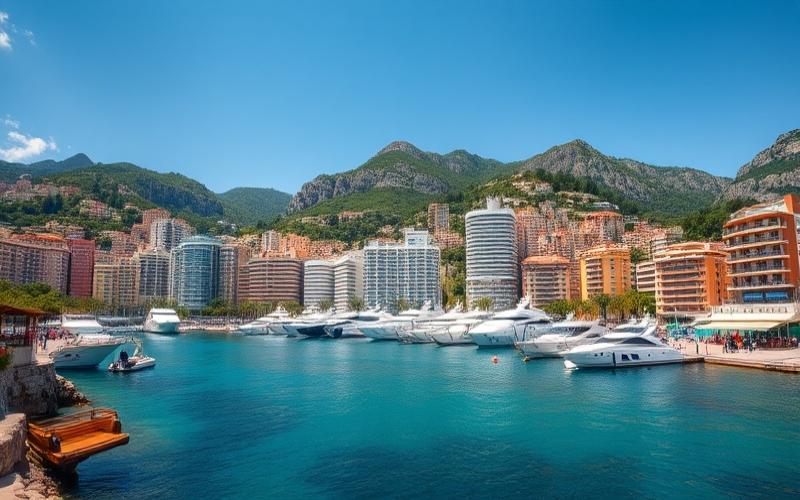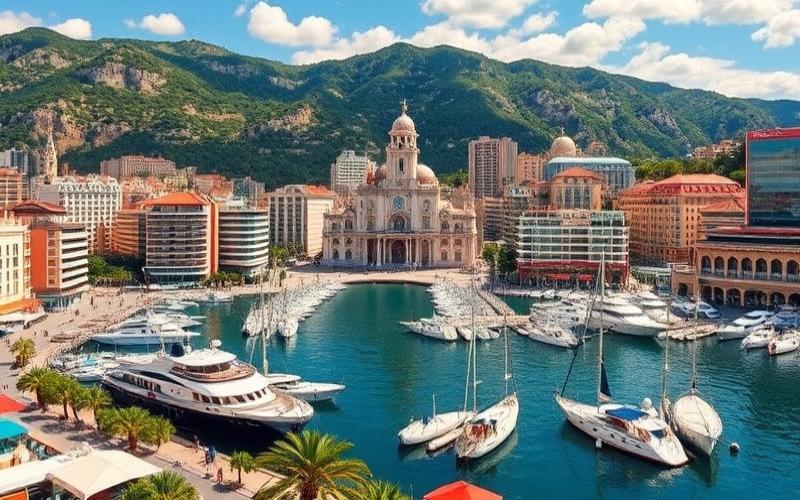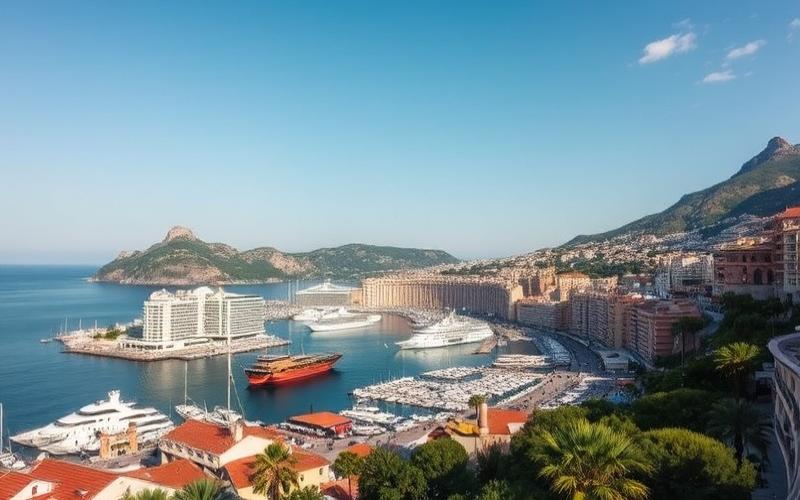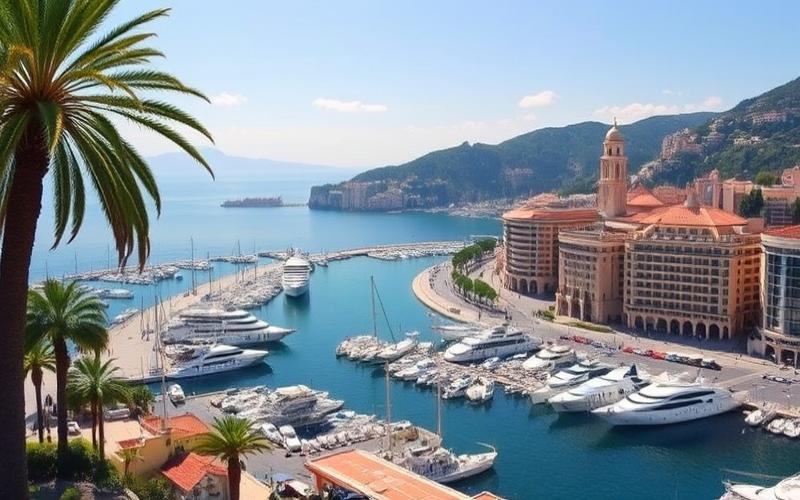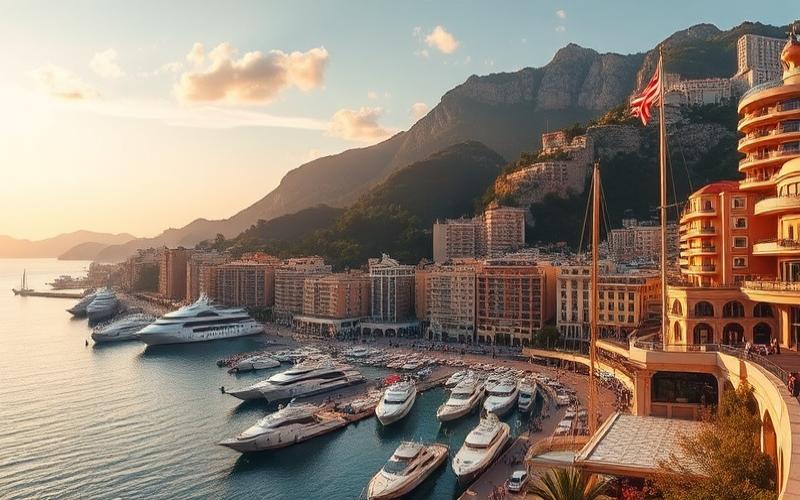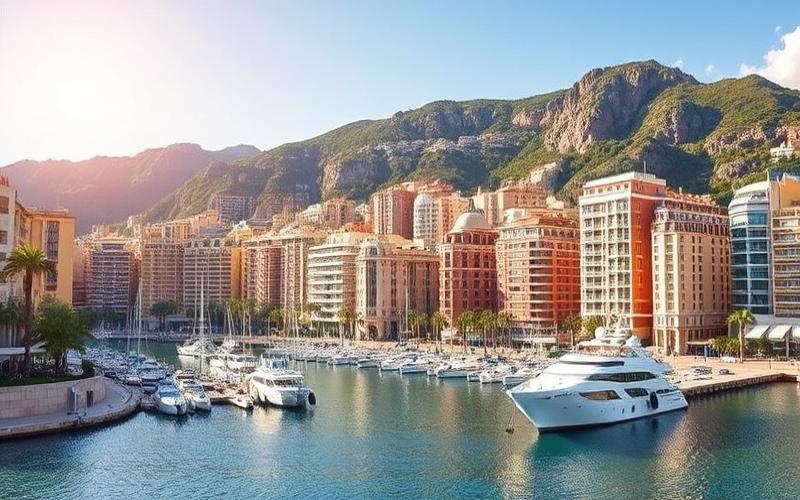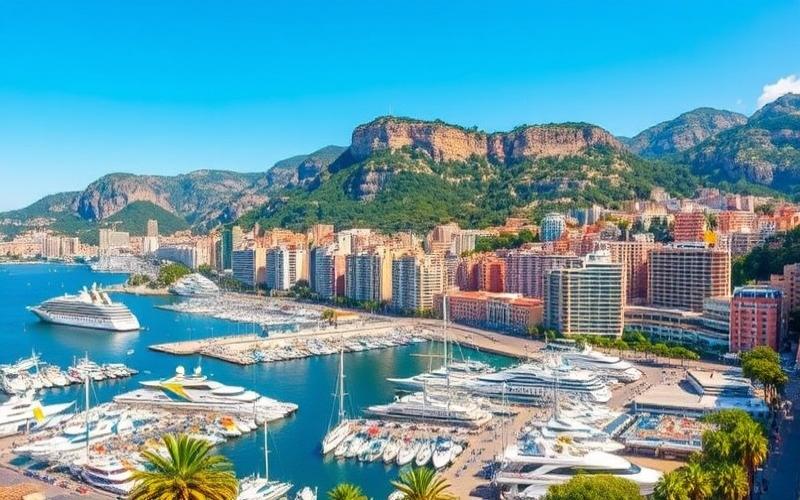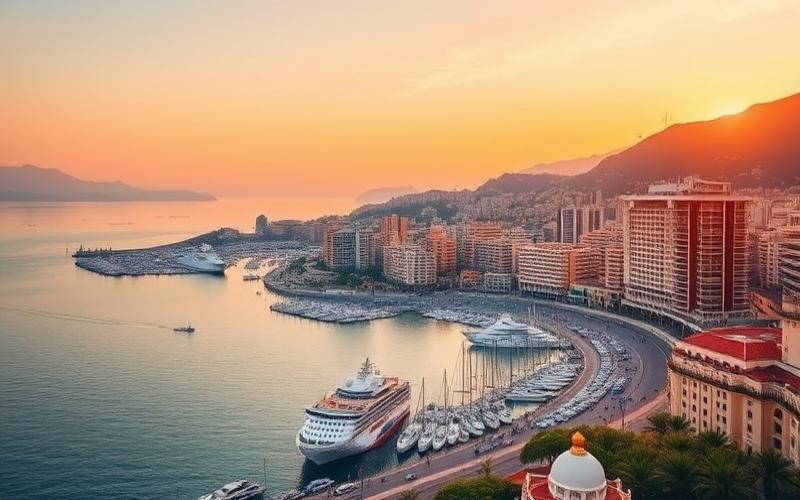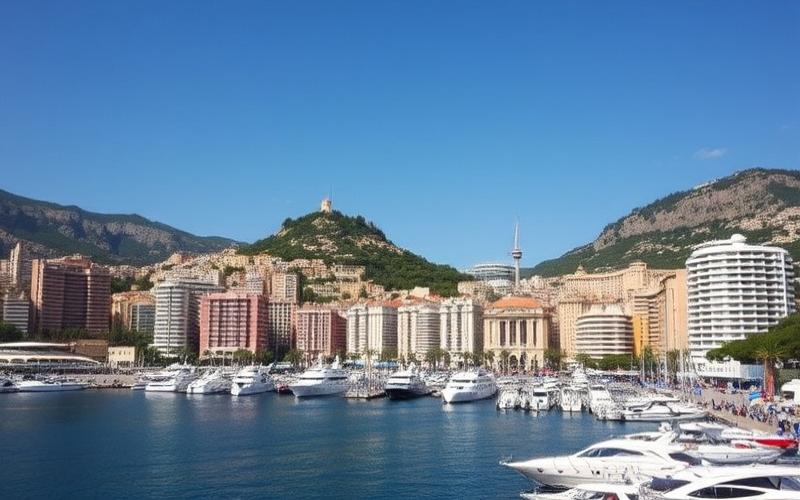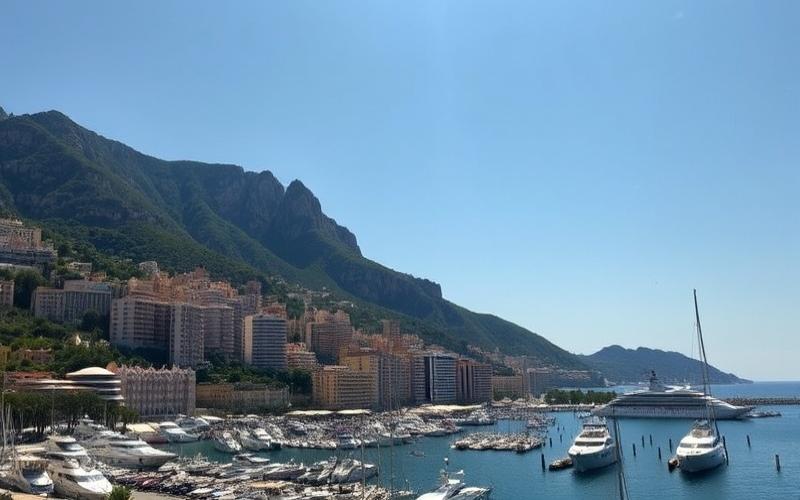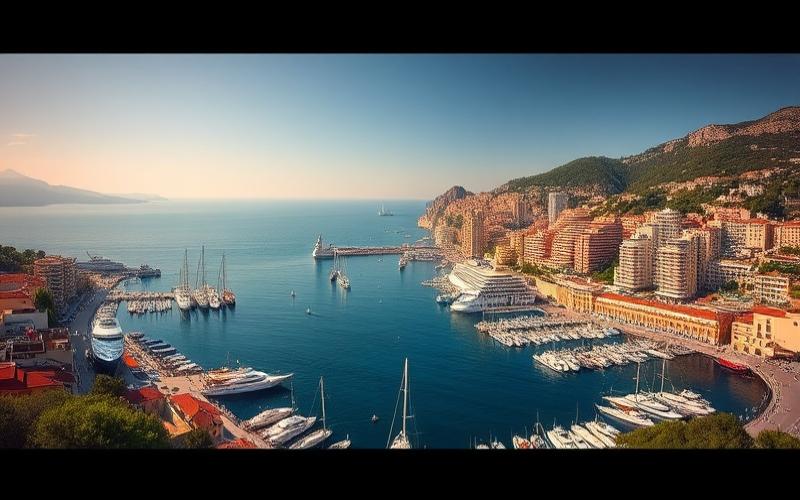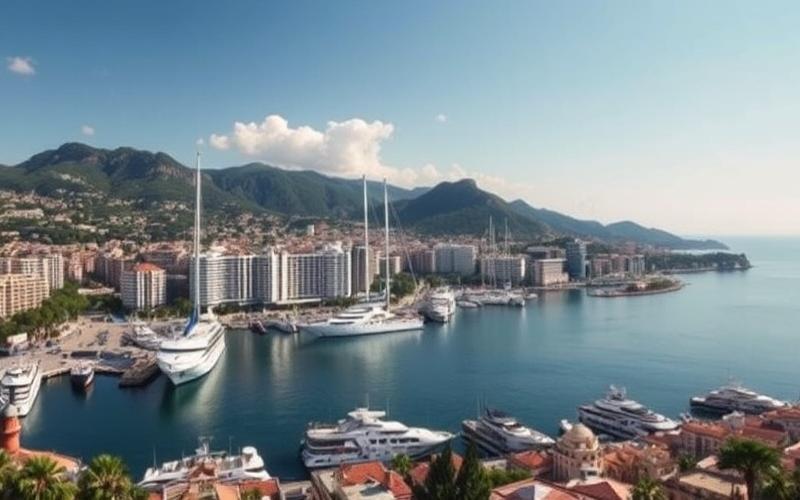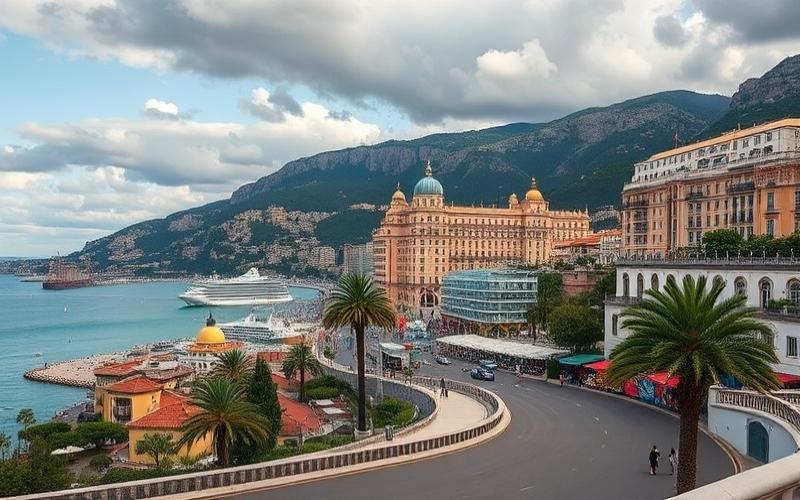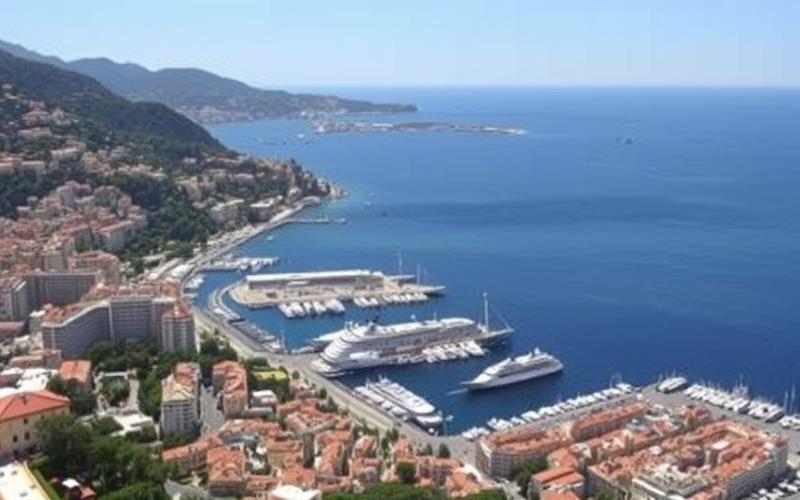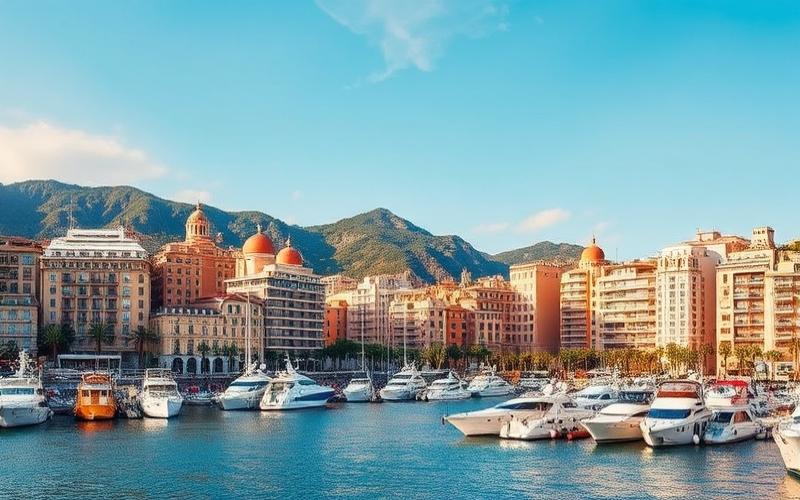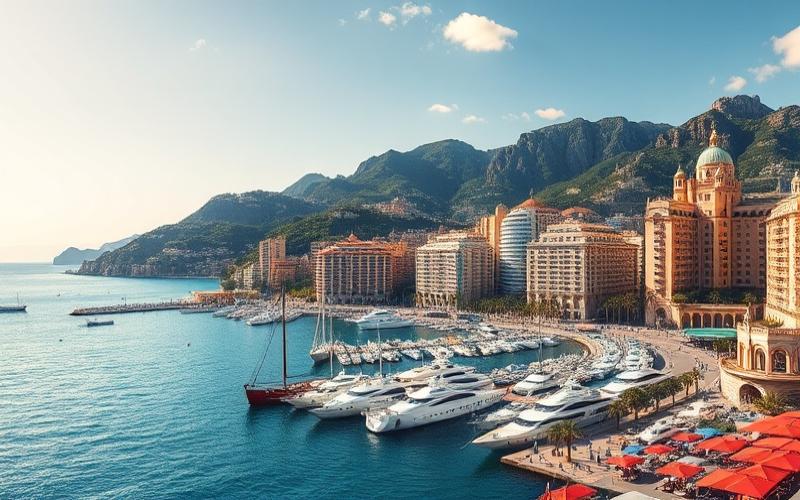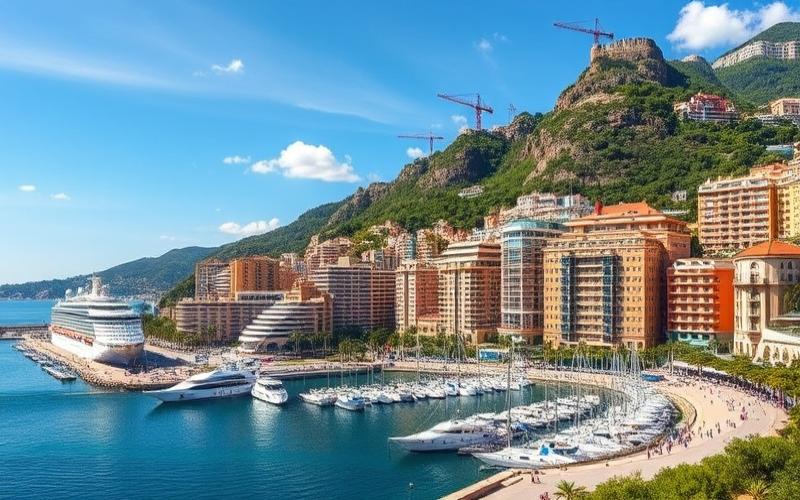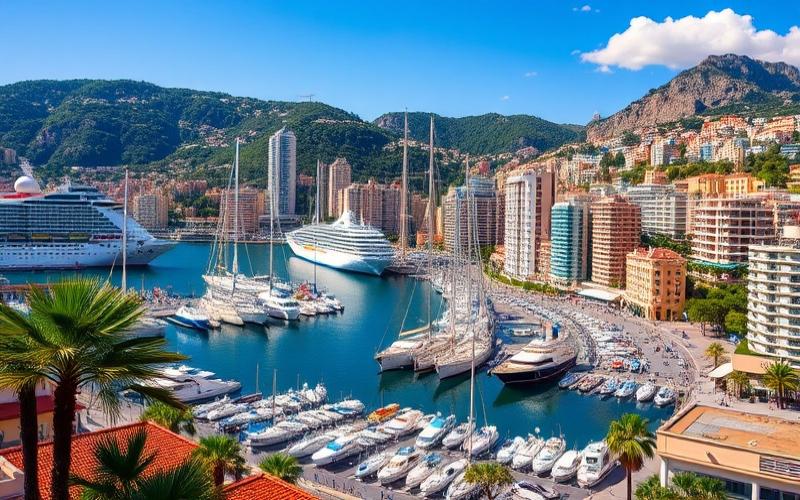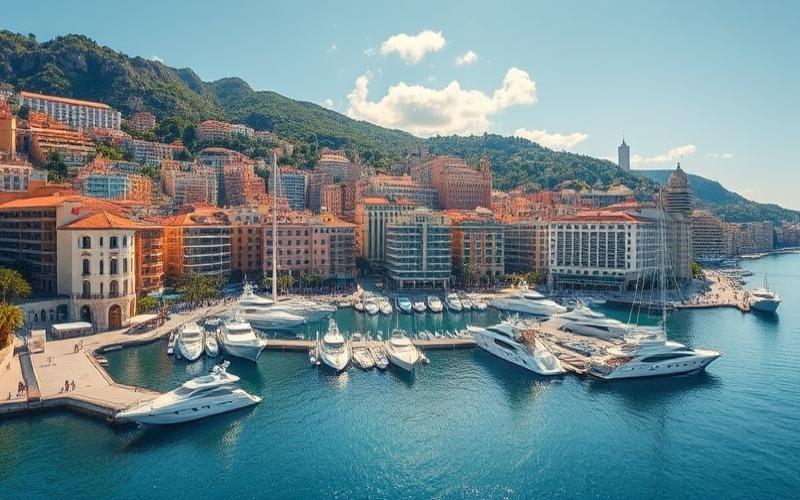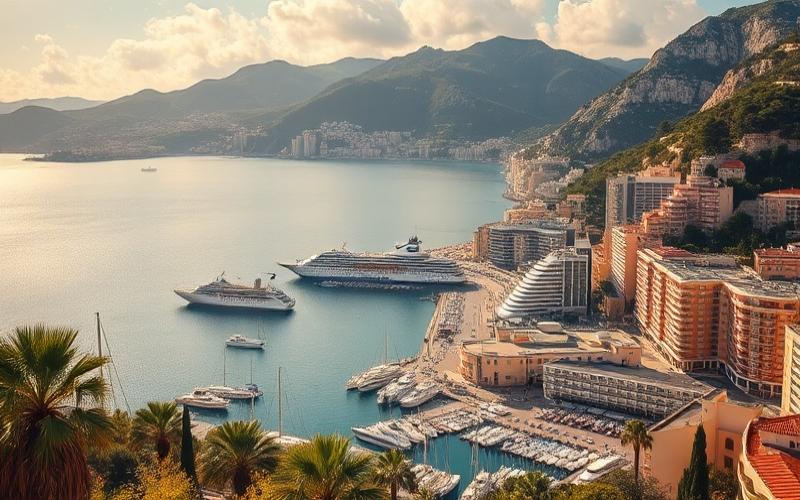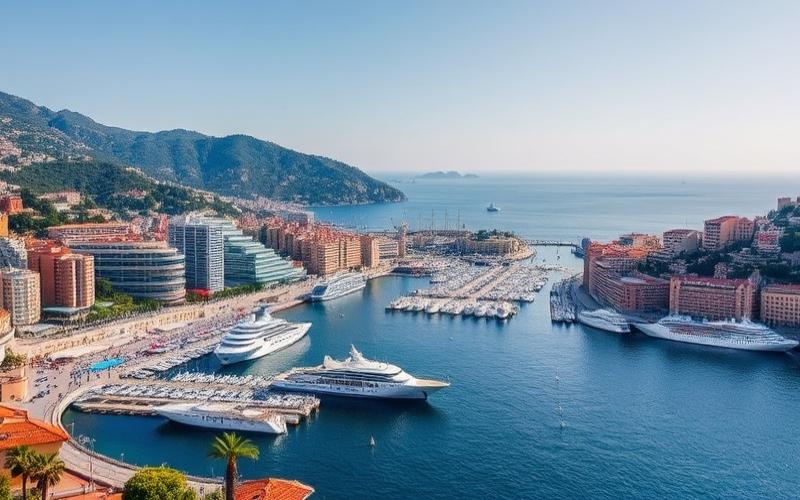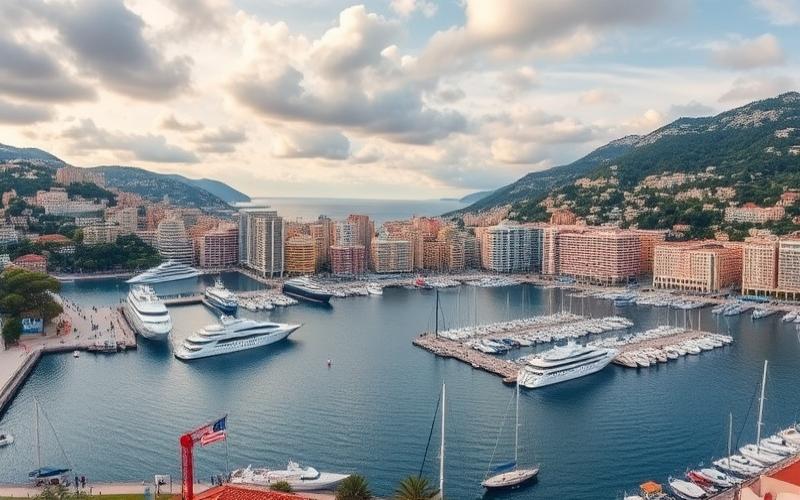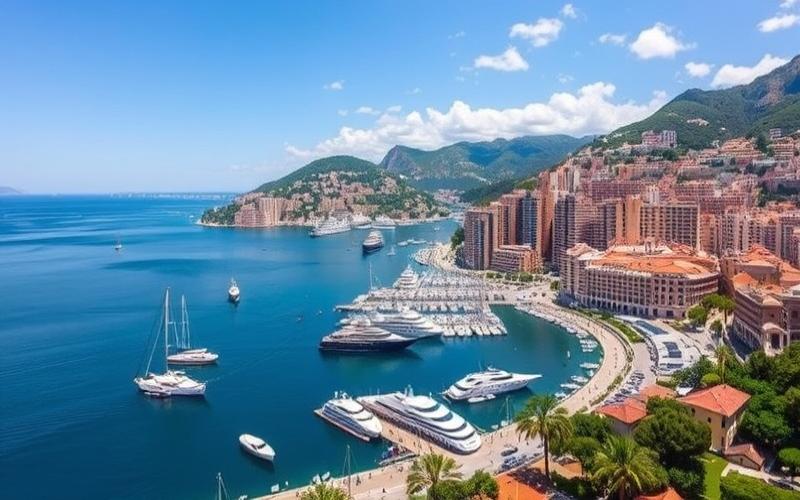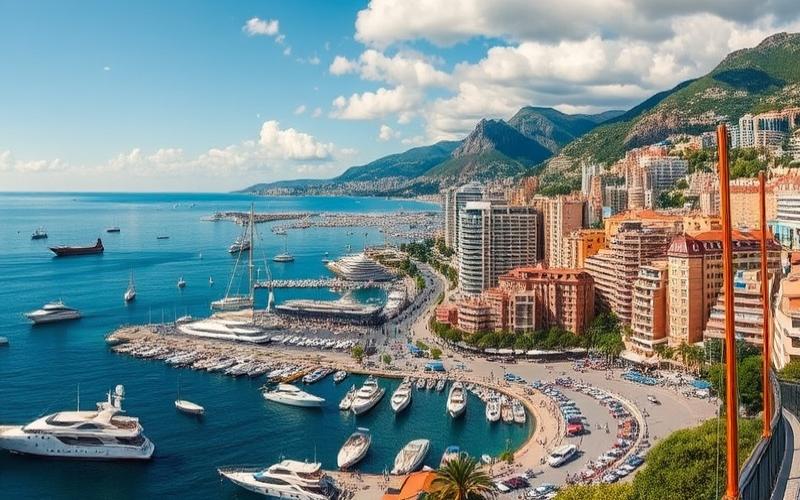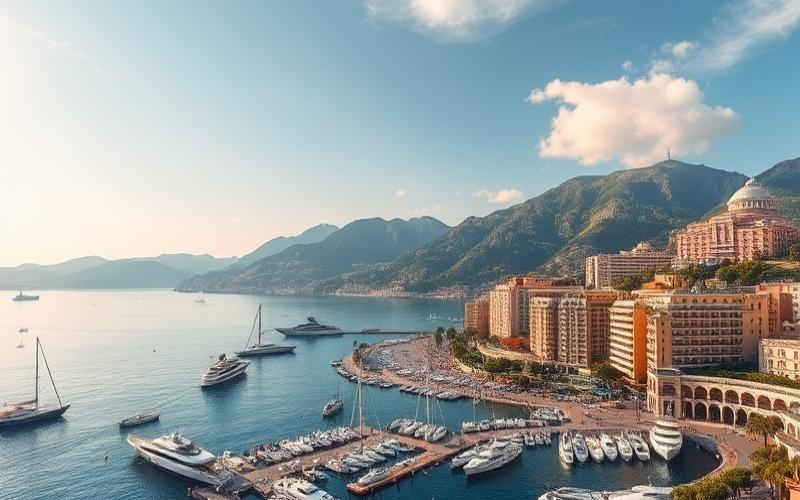
 Published on and written by Cyril Jarnias
Published on and written by Cyril Jarnias
Monaco and Its Exclusive Real Estate Market
Monaco, renowned for its idyllic setting and exclusive real estate market, imposes specific requirements for property insurance, essential for any buyer or tenant wishing to thrive in this prestigious environment.
The Importance of Property Insurance in Monaco
In this unique context where every square meter is worth its weight in gold, understanding mandatory insurance and comparing available options become crucial elements for successfully navigating the princely real estate sector.
Essential Insurance Policies
This article aims to explore every aspect of essential insurance policies, offering owners and investors a valuable resource to effectively insure their properties and ensure peace of mind against market eventualities.
Good to Know:
Property insurance in Monaco is often stricter and more comprehensive than in other countries due to the high value of properties and specific risks associated with the principality.
Mandatory Home Insurance in Monaco
The legal framework for home insurance in Monaco is based on specific provisions that distinguish the Principality from many other countries. Law No. 1.531 of July 29, 2022 imposes the obligation for all non-occupying owners to take out specific insurance (“non-occupying owner,” or PNO) with a company licensed in Monaco. This obligation aims to protect the property, third parties (especially neighbors), and the owner themselves in case of damage.
For tenants, there is also a strict obligation: every tenant must provide proof of home insurance covering their liability, particularly for unfurnished vacant dwellings. This insurance covers damages caused to the dwelling or third parties and often includes additional guarantees such as protection for furniture and contents.
Main Mandatory Coverages
- Civil liability (protection against damages caused to others)
- Property damage
- Guarantee against certain rental risks
In the Monegasque context, both occupying and non-occupying owners must comply with a legal minimum of insurance, primarily focused on civil liability but which can be expanded depending on the property’s configuration.
Specific Obligations for Co-owners in a Collective Residence
- Each co-owner must take out insurance covering their own liability regarding common and private areas.
- The PNO insurance complements that potentially taken out by the homeowners’ association; it applies if damage occurs during non-occupancy or if the primary insurance does not cover certain specific risks.
International Comparison
| Scheme | Monaco | France | Italy |
|---|---|---|---|
| Tenant Insurance | Mandatory | Mandatory | Recommended |
| PNO Insurance | Mandatory | Recommended/Optional | Rarely Mandatory |
| Co-ownership | Individual Insurance + Possible Association | Mandatory Association |
Monegasque Nuances
“In Monaco, the absence of a legal obligation for the homeowners’ association contrasts with France where this coverage is regulated by the Alur law. Moreover, eviction remains possible year-round in case of insurance default by the tenant, even during what would be a winter truce in France.”
Common Examples of Policies and Leading Providers in the Monegasque Market
- Multi-risk home insurance offered by Allianz Riviera Insurance, MMA Monaco, AXA Assurances Principauté.
- Typical policies include extended coverage for water damage, fire-explosion, glass breakage, and theft.
Recognized Providers
- Allianz
- AXA
- MMA all have specialized agencies providing local support adapted to Monaco’s specific regulatory framework.
The systematic requirement for a policy suited to each type of occupancy (simple rental or ownership with rental management), combined with a regime without winter truce or tolerance for contractual default in insurance matters, clearly distinguishes Monaco from traditional French or Italian law.
Good to Know:
In Monaco, although legislation does not specifically impose home insurance on owners, it strongly recommends taking out coverage to protect against material damages and rental risks. Tenants, on the other hand, often must prove they have rental civil liability insurance before signing a lease. In collective residences, co-owners are required to insure their properties and common areas against fire and water damage risks, an obligation supervised by the association. Compared to other countries, Monaco stands out for the absence of a strict legal mandate, leaving the initiative to the concerned parties, while emphasizing the importance of protection. Providers such as Marsh Monaco and Gras Savoye are popular, offering policies including basic guarantees and personalized extensions, meeting the varied requirements of the local real estate market.
Understanding Owner Civil Liability
The concept of civil liability for property owners in Monaco aims to protect third parties against any damage caused by a property, whether due to a construction defect, lack of maintenance, or abnormal neighborhood disturbances. In the Principality, this responsibility falls on both co-owners and homeowners’ associations and concerns both occupants and non-occupants.
Each co-owner is required to insure against civil liability risks for which they are responsible in their capacity as either an occupying co-owner or a non-occupying co-owner with an insurance company licensed in the Principality.
This obligation was reinforced by Law No. 1.531 of July 29, 2022, which requires all non-occupying owners (“PNO”) to take out dedicated insurance. This insurance complements that of the tenant (also mandatory), thus providing cross-protection for all concerned parties in case of:
- Fire,
- Water damage,
- Damages caused to neighbors or common areas,
- Or during work causing abnormal disturbances exceeding those normally tolerated in Monaco’s dense urban environment.
Comparative Table: Legal Requirements Regarding Civil Liability Insurance
| Jurisdiction | Mandatory Owner Civil Liability Insurance | Local Particularities |
|---|---|---|
| Monaco | Yes | Obligation for occupants and non-occupants; locally licensed companies; high urban density |
| France | No (except associations) | Recommended but not always mandatory except in co-ownership (association) |
| Italy | No | Generally optional unless specified in regulations |
In the Monegasque context, several factors make this coverage indispensable:
- High Density: Urban concentration increases the risk that incidents affect multiple people or properties simultaneously.
- High Value of Real Estate: The potential cost related to damage can be considerable.
- Functional Mix: Buildings mixing private residences and professional premises increase risk exposure.
- Strict Jurisprudence on Abnormal Neighborhood Disturbance: An owner can be held liable even without direct fault if their actions cause harm exceeding what is tolerable in the concerned environment.
Summary List: Key Reasons to Take Out Owner Civil Liability Insurance in Monaco
- Comply with specific local legal obligation
- Financially protect against any claim related to the property
- Safeguard assets against potentially high repair or compensation costs
- Effectively respond to increased risks induced by urban density and land value
In this particular context, a thorough understanding of the rights and obligations related to this coverage is essential to ensure compliant and secure asset management.
Good to Know:
In Monaco, owner civil liability is an essential component of property management due to the high population density and remarkable value of properties. This insurance protects owners against claims for damages caused to third parties on their property, such as falls or material damages in common areas. Monegasque legislation requires owners to take out such insurance, unlike some jurisdictions where it is only optional. This legal requirement ensures effective coverage, reducing financial risks associated with potential costly lawsuits in a market where damage repairs could be exceptionally expensive, due to the high valuation of real estate and associated legal fees in the principality.
Coverage of Rental Risks in the Principality
The rental risks encountered in Monaco mainly concern:
- Water damage
- Fires
- Explosions
- Property damages caused by the tenant or third parties
- Unpaid rents
In the Principality, the very high-end real estate environment amplifies the stakes related to these risks.
Mandatory Insurances and Available Protections:
| Insurance | Mandatory | Target | Risks Covered |
|---|---|---|---|
| Home Insurance | Yes | Tenant | Fire, water damage, civil liability |
| Non-Occupying Owner Insurance (PNO) | Yes (Law No. 1.531 of July 29, 2022) | Owner | Damages not covered by tenant’s insurance, various incidents |
| Unpaid Rent Guarantee | No (optional but strongly advised) | Owner | Unpaid rents and charges |
| Property Damage Insurance | No (often included in PNO or GLI) | Owner | Damages to the property caused by the tenant |
Home insurance is mandatory for every tenant in Monaco. It protects against the main incidents that can affect the rented dwelling. The owner must also take out PNO insurance with a company licensed in the Monegasque territory. This coverage targets risks that would not be covered by the tenant’s insurance and also protects against certain damages caused directly by the tenant.
The unpaid rent guarantee as well as protection against damages are optional but strongly recommended given the high value of the properties involved.
Responsibility Sharing According to Monegasque Legislation:
The owner remains responsible for protecting their property and neighbors, even if they do not occupy the dwelling. They must ensure the property is insured for all major risks.
The tenant has the obligation to take out insurance covering their liability towards the owner for any damage caused to the rented dwelling.
In case of insurance default or inappropriate use of the property, the lease can be terminated without specific seasonal notice; the winter truce does not exist in Monaco.
Main Responsibilities:
- Owner
- Mandatory subscription to PNO insurance
- General monitoring of the property’s condition and compliance with contractual uses
- Tenant
- Mandatory subscription to multi-risk home insurance covering especially their liability towards others and the owner
- Compliant use according to contractual terms
In case of an incident, there is automatic subrogation: no compensation can be paid directly to the tenant without the landlord having been previously compensated for their rights related to the suffered incident.
Local Legal Specificities:
The Monegasque regime requires that all insurances related to real estate properties be taken out with locally licensed establishments. Certain clauses common in other countries may be deemed “unwritten” if they contradict protective provisions imposed by Monegasque law (examples: disproportionate penalties for minor breaches).
Furthermore:
Total or partial non-payment of rent, default of adequate insurance, or illicit occupation legally constitute sufficient grounds for immediate termination of the contract without automatic application of an additional period.This regulatory framework differs significantly from French practices where certain protective deadlines are imposed even during serious breaches.
Specific Importance in an Exclusive Market Like Monaco:
In an environment where the average value of dwellings is very high, any negligence regarding insurance exposes both owners and occupants to a major financial risk. These coverages also allow demanding international investors – typical in this market – to secure their assets against all types of hazards related to both the behavior and potential solvency of successive occupants.
Proactive and exhaustive insurance management is therefore an unavoidable requirement to preserve both the intrinsic and extrinsic value specific to Monegasque real estate assets.
Good to Know:
In Monaco’s exclusive real estate market, owners and tenants must be aware of rental risks such as unpaid rents and property damages. Mandatory insurances such as unpaid rent insurance, often taken out by the owner, and multi-risk home insurance for the tenant, are essential. Monegasque legislation specifies that the tenant is responsible for damages caused by their fault or negligence, while the owner must insure the structure of the property. Due to the legal specificities of the Principality, particularly the distinction between local and international regulations, it is crucial to fully understand the conditions of these insurances. In this ultra-competitive environment, these coverages ensure the financial and legal security of the parties, while reinforcing confidence in the framework of significant real estate investments.
Disclaimer: The information provided on this website is for informational purposes only and does not constitute financial, legal, or professional advice. We encourage you to consult qualified experts before making any investment, real estate, or expatriation decisions. Although we strive to maintain up-to-date and accurate information, we do not guarantee the completeness, accuracy, or timeliness of the proposed content. As investment and expatriation involve risks, we disclaim any liability for potential losses or damages arising from the use of this site. Your use of this site confirms your acceptance of these terms and your understanding of the associated risks.

